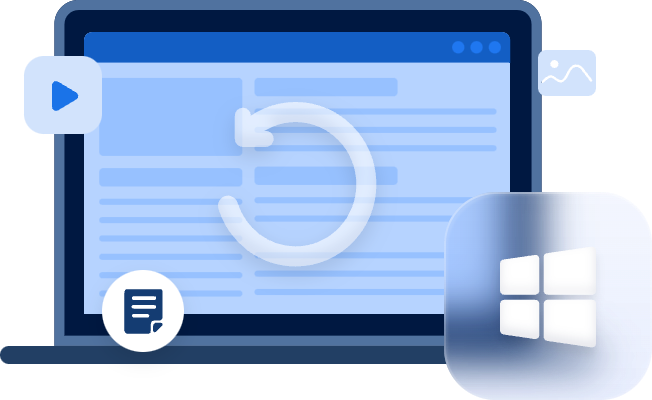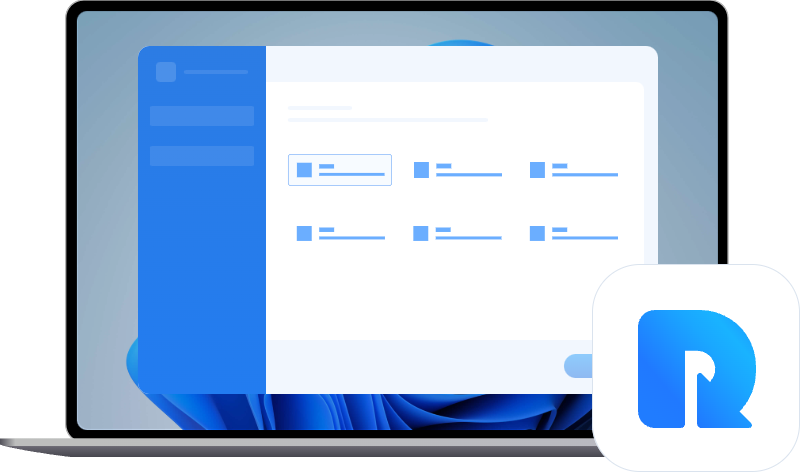USB Keeps Disconnecting: A Comprehensive Guide to Troubleshooting and Solutions
Explore the reasons behind USB disconnection problems, learn troubleshooting tips, and discover MyRecover, an innovative solution for seamless USB connectivity. Prevent issues with quality cables and proactive maintenance.
In our fast-paced, technology-driven world, USB devices play a pivotal role in our daily lives. Whether it's transferring files, connecting peripherals, or charging our devices, USB connectivity is crucial. However, the frustration of dealing with a USB that keeps disconnecting can be overwhelming. In this comprehensive guide, we will delve into the common causes of USB disconnection issues, provide effective troubleshooting tips, and introduce an innovative solution – MyRecover.
Understanding USB Disconnecting Issues
Common Causes
USB disconnection problems can arise from various sources, making it essential to identify the root causes. Here are some common culprits:
Loose Connections: A seemingly secure connection may not be as stable as it appears. Physical disruptions or vibrations can lead to intermittent disconnections.
Outdated or Incompatible Drivers: Device drivers act as a bridge between your USB device and the operating system. Outdated or incompatible drivers can result in connection issues.
Power Management Settings: Some systems are configured to conserve power by putting USB ports to sleep. While this is energy-efficient, it can lead to USB disconnections.
Troubleshooting Tips
Check Physical Connections: Start by ensuring that your USB is securely connected. If you notice any looseness, reattach the device to the port.
Update Drivers: Regularly update your device drivers to the latest versions. This ensures compatibility and resolves issues related to outdated or incompatible drivers.
Power Management Settings: Adjust your power management settings to prevent the system from putting USB ports to sleep. This can be done through the device manager or power options in your control panel.
MyRecover Solution
Features
MyRecover emerges as a comprehensive solution to USB disconnecting woes, offering a range of features to enhance user experience:
Real-time Monitoring: MyRecover constantly monitors USB connections, providing real-time alerts when potential issues are detected.
Automated Troubleshooting: The software comes equipped with automated solutions for common USB problems, streamlining the troubleshooting process.
Compatibility: MyRecover is designed to be compatible with a wide range of devices and operating systems, ensuring versatility for users.
How It Works
MyRecover employs advanced algorithms to detect and address USB connectivity issues. Here's a breakdown of how this innovative solution works:
Real-time Monitoring: MyRecover actively monitors USB connections, analyzing data to identify patterns or anomalies that could lead to disconnections.
Automated Solutions: When a potential issue is detected, MyRecover provides automated solutions. This could include resetting the USB port, updating drivers, or adjusting power settings.
User-Friendly Interface: MyRecover's intuitive interface allows users to navigate through troubleshooting processes effortlessly, making it accessible even for those with limited technical expertise.
Step-by-Step Guide for Data Recovery
1. Download and Install MyRecover
To initiate the DIY data recovery process using MyRecover, follow these steps:
Visit the official website of MyRecover and locate the download section.
Download the MyRecover tool compatible with your operating system (Windows or Mac).
Run the installation wizard and follow the on-screen instructions to install MyRecover on your system.
2. Launch MyRecover and Select Drive
Once installed, launch the MyRecover application:
Open MyRecover and allow the application to initialize.
From the main interface, choose the drive or storage device from which you need to recover data.
3. Scan for Lost Data
MyRecover performs a thorough scan to identify lost or deleted files:
Initiate the scanning process and allow MyRecover to analyze the selected drive.
The scanning time may vary based on the size and speed of the storage device.
4. Preview and Select Files
Before finalizing the recovery process, preview and select the files:
MyRecover provides a preview of the recovered files to ensure their integrity.
Select the files you wish to recover and choose a destination for the restored data.
5. Complete the Recovery Process
Finalize the DIY data recovery process using MyRecover:
Click on the "Recover" button to initiate the data recovery process.
Wait for MyRecover to restore the selected files to the specified location.
Tips to Prevent USB Disconnecting
Invest in Quality Cables: The quality of your USB cables matters. Investing in reliable, high-quality cables can significantly reduce the likelihood of disconnections.
Regular Maintenance: Periodically check and clean your USB ports. Dust or debris can accumulate over time, affecting the stability of connections.
Avoid Overloading USB Ports: Distribute your devices across multiple USB ports to prevent overloading. Overloading a single port can strain the connection and lead to frequent disconnections.
Update Firmware: In addition to updating device drivers, regularly check for firmware updates for your USB devices. Manufacturers often release updates to enhance compatibility and address connectivity issues.
Conclusion
In conclusion, dealing with a USB that keeps disconnecting can be a frustrating experience. However, by understanding the common causes, implementing effective troubleshooting tips, and exploring innovative solutions like MyRecover, you can regain control over your USB connectivity. Taking proactive measures, such as investing in quality cables and performing regular maintenance, can further contribute to a seamless computing experience.
FAQs
Q: How does MyRecover differ from traditional troubleshooting methods?
A: MyRecover utilizes advanced algorithms for real-time monitoring and automated troubleshooting, offering a more efficient solution compared to manual methods.
Q: Can using low-quality USB cables cause disconnection issues?
A: Yes, investing in quality cables is essential. Low-quality cables can lead to unstable connections, resulting in frequent USB disconnections.
Q: Are there specific devices that MyRecover is not compatible with?
A: MyRecover is designed to be compatible with a wide range of devices and operating systems. However, users should check the system requirements to ensure compatibility.
In conclusion, by following these tips and exploring innovative solutions, you can bid farewell to the frustration of dealing with a USB that keeps disconnecting. Embrace a seamless computing experience and make the most out of your USB devices.


